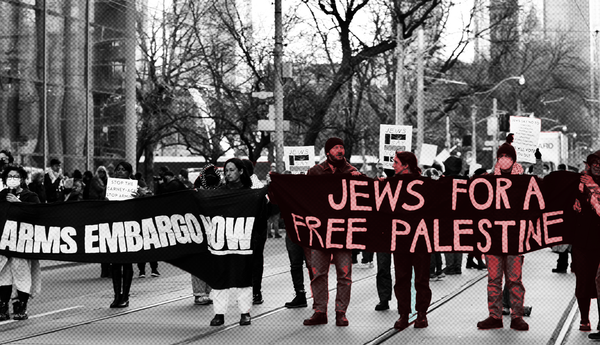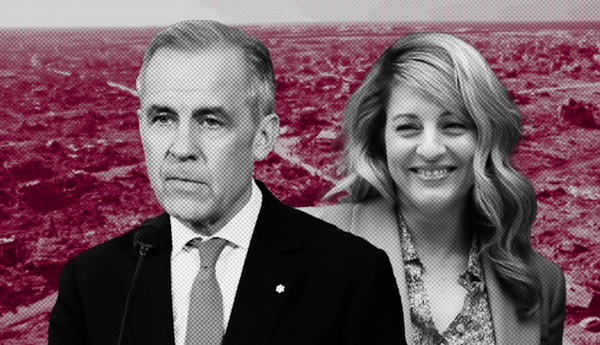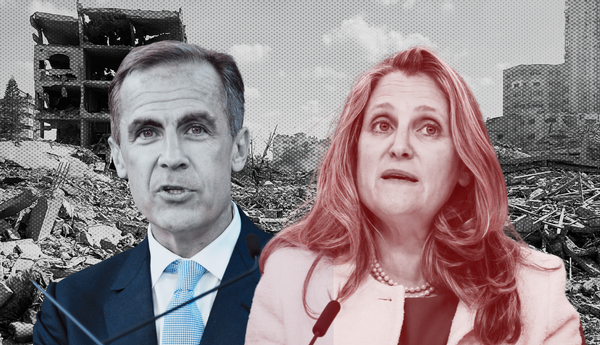The federal government says it doesn’t know how many Palestinians may have arrived in Canada under its emergency family reunification program amid an ever-worsening situation in Gaza caused by Israel’s intensifying attacks.
According to reports, Israeli tanks took control of the Rafah border crossing yesterday, cutting off a vital aid route and any remaining possibility for civilians to pass through to neighbouring Egypt.
The Israeli army had recently ordered Palestinians to evacuate the city ahead of a feared ground assault, despite civilians warning that “no area is safe” and that the attacks will subject Palestinians to “the biggest genocide.”
Matthew Krupovich, a spokesperson with Immigration, Refugees and Citizenship Canada (IRCC), told The Maple that as of April 29, 2024, the ministry cannot confirm how many individuals — if any — had actually arrived in Canada under the family reunification program.
While there have been rumours that a handful of families have arrived, at least some of the individuals are permanent residents of Canada and are not part of the emergency program, which grants temporary visas to residents of Gaza who have relatives that are either Canadian citizens or permanent residents.
But there has been some movement. According to IRCC, there are 179 people who have been approved to enter Canada and have left Gaza, up from 129 on April 15. Each of those individuals left Gaza through their own means.
Krupovich claimed that nothing is stopping the 179 approved individuals from coming to Canada. “These individuals may travel to Canada any time while their temporary resident visa (TRV) is valid. In general, Immigration, Refugees and Citizenship Canada (IRCC) does not control when and if individuals with valid visas choose to travel to Canada,” he wrote via email.
Krupovich didn’t give any specific reasons for why someone wouldn’t travel to Canada despite being approved to do so.
Shaymaa Ziara has been working to get her family members out of Gaza. She explained that in her family, everyone is at different stages in the acceptance process, and the family members cannot leave together until everyone has been approved.
Ziara’s younger brother, who was 17 when he submitted his application, was approved relatively quickly, but her older brother, who is 37, is still waiting for approval.
The older brother’s application has been “stuck” since January 16 and the family has received no updates, even though Ziara’s family applied for him at the same time as the rest of her family. She wonders if his age means he is being subjected to more intense scrutiny than the other family members.
There is also the question of costs. The Canadian government has not financially assisted anyone fleeing Gaza who was eligible to come to Canada under the emergency program, meaning that families have been saddled with steep expenses.
To leave Gaza costs an individual around $5,000 US. After that, applicants must pay for accommodation and food in Egypt while waiting for the rest of their families to leave and for their documents to be approved.
This process can be fraught. A family member in Egypt has to take cash to a company to pay for their family to be evacuated from Gaza. One source told The Maple that the family she was helping hit a roadblock when a family member in Cairo swapped out the names of three people due to be sponsored for the names of three other family members.
Finally, each family must gather sufficient funds to fly from Cairo to Canada. One-way flights from Cairo to Toronto, for example, start at around $1,000 per person.
With conditions deteriorating even further in Rafah, where 1.4 million displaced Palestinians in Gaza have been sheltering, the situation is becoming ever more desperate — especially as Israel has intensified its bombing of the besieged city despite Hamas accepting a truce deal.
Ziara said that public documents related to the Rafah border crossing show that other countries around the world have been paying to evacuate people. She doesn’t understand why Canada hasn’t also done this.
She said IRCC’s suggestion that it isn’t the ministry’s business to understand why approved applicants haven’t yet come to Canada is disingenuous.
“They’re really implying: ‘Hey, you wanted [the government] to help them and then we helped them but now they aren’t coming,’” she explained. “This isn’t an innocent statement. They’re insinuating that we’re abusing the system or something.”
“Their failure in executing this program properly has thrown people’s plans out the window” because of how much money applicants have had to pay just to get to Cairo, Ziara said.
Since early March, the number of people who have been accepted into the application process has been frozen at 986. This is despite the fact that Immigration Minister Marc Miller said on March 18 that IRCC would increase the number of available visas.
He told the Canadian Press:
“We are indeed increasing the number of people that will be eligible to come out of Gaza. There are a number of matters that are beyond our control, notably the ability to extract people from the Rafah gate … We will be relentless in advocating for people to reunifying with their family members in Canada, if but for a temporary basis.”
Krupovich said the large volume of application requests has slowed down processing:
“People who submitted a web form while still in Gaza, and have since left, may still be eligible for the public policy. They may receive a unique code to apply for a TRV (Temporary Resident Visa) depending on spaces left under these special measures. Similarly, people who submitted a TRV application under these measures and have since left Gaza will also continue to have their application processed pending available space under the intake cap.”
Israel has killed at least 35,287 Palestinians in Gaza since it began its current offensive in October 2023. The death toll includes more than 14,500 children.
Israel’s attack has inflicted a humanitarian catastrophe on Gaza — including what the United Nations has described as a “full-blown” famine — displaced 85 per cent of the population, and is currently being examined as a “plausible” case of genocide at the International Court of Justice.







